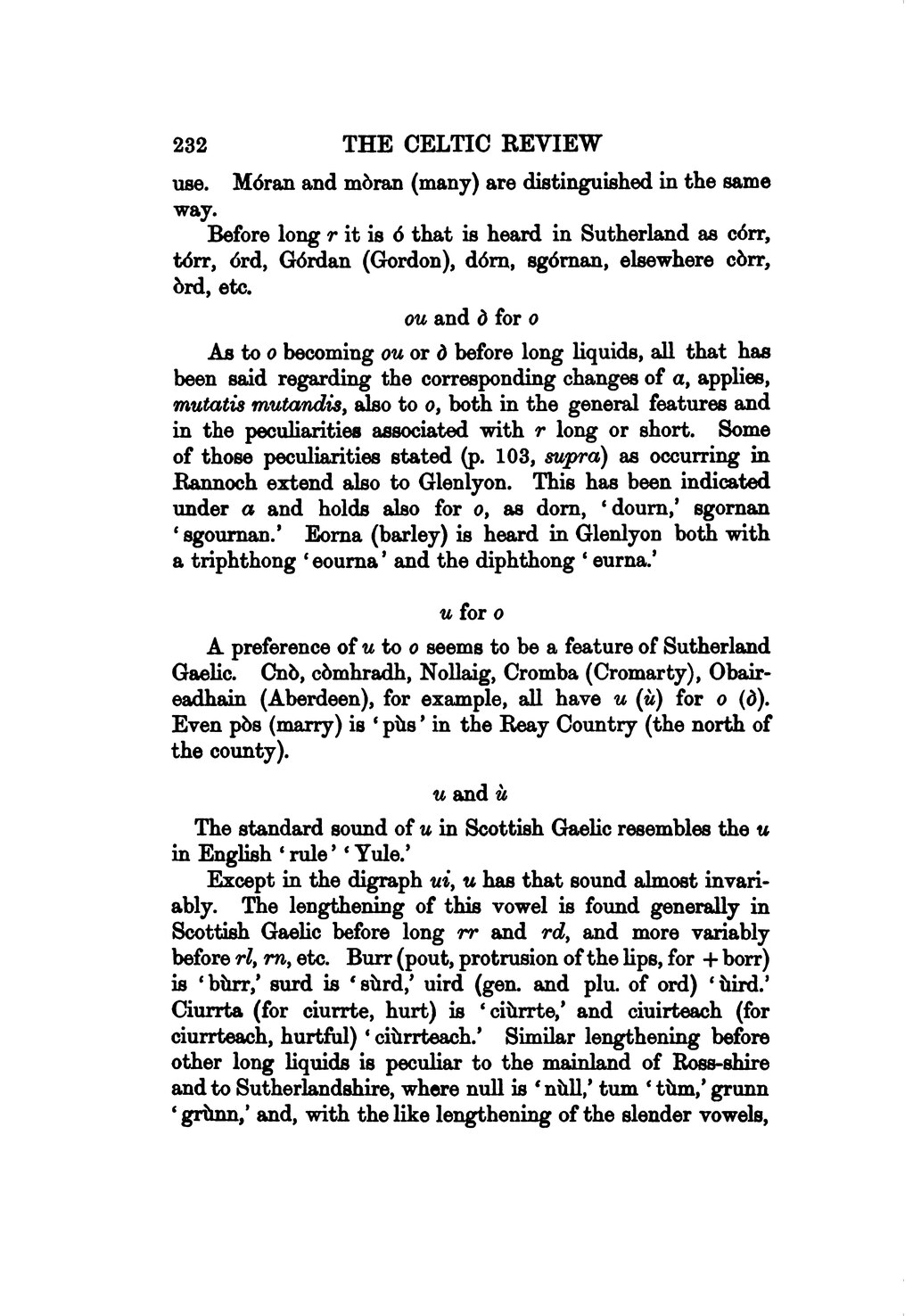use. Móran and mòran (many) are distinguished in the same way.
Before long r it is ó that is heard in Sutherland as córr, tórr, órd, Górdan (Gordon), dórn, sgórnan, elsewhere còrr, òrd, etc.
ou and ò for o
As to o becoming ou or ò before long liquids, all that has been said regarding the corresponding changes of a, applies, mutatis mutandis, also to o, both in the general features and in the peculiarities associated with r long or short. Some of those peculiarities stated (p. 103, supra) as occurring in Rannoch extend also to Glenlyon. This has been indicated under a and holds also for o, as dorn, ‘dourn,’ sgornan ‘sgournan.’ Eorna (barley) is heard in Glenlyon both with a triphthong ‘eourna’ and the diphthong ‘eurna.’
u for o
A preference of u to o seems to be a feature of Sutherland Gaelic. Cnò, còmhradh, Nollaig, Cromba (Cromarty), Obaireadhain (Aberdeen), for example, all have u (ù) for o (ò). Even pòs (marry) is ‘pùs’ in the Reay Country (the north of the county).
u and ù
The standard sound of u in Scottish Gaelic resembles the u in English ‘rule’ ‘Yule.’
Except in the digraph ui, u has that sound almost invariably. The lengthening of this vowel is found generally in Scottish Gaelic before long rr and rd, and more variably before rl, rn, etc. Burr (pout, protrusion of the lips, for + borr) is ‘bùrr,’ surd is ‘sùrd,’ uird (gen. and plu. of ord) ‘ùird.’ Ciurrta (for ciurrte, hurt) is ‘ciùrrte,’ and ciuirteach (for ciurrteach, hurtful) ‘ciùrrteach.’ Similar lengthening before other long liquids is peculiar to the mainland of Ross-shire and to Sutherlandshire, where null is ‘nùll,’ tum ‘tùm,’ grunn ‘grùnn,’ and, with the like lengthening of the slender vowels,
